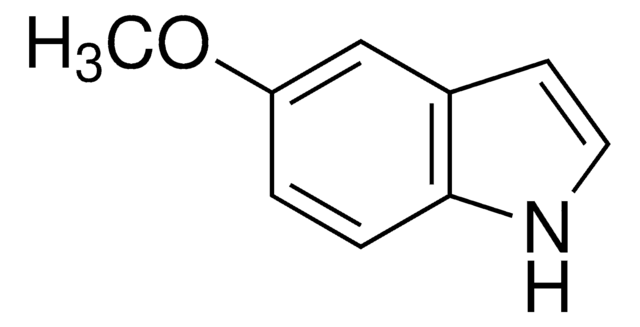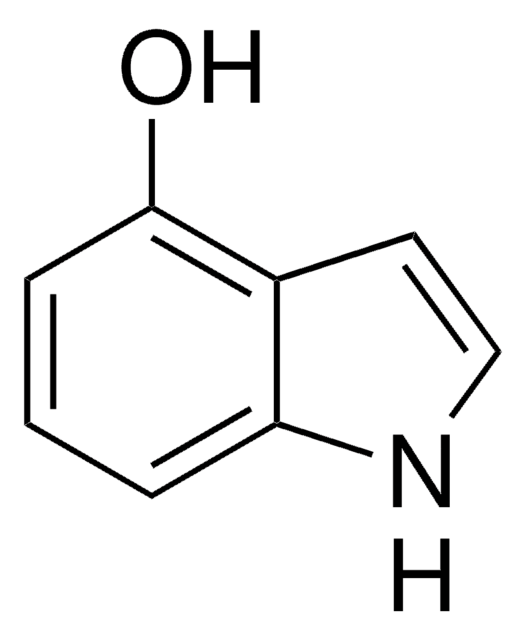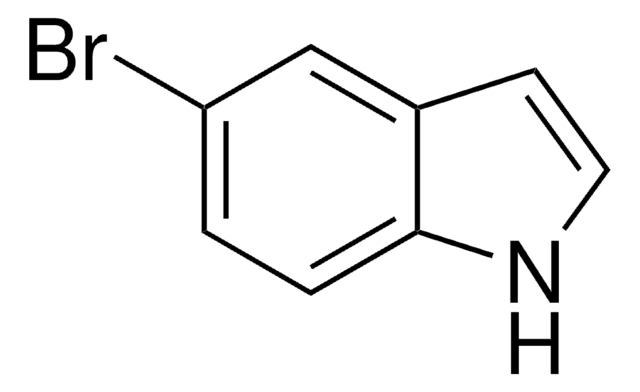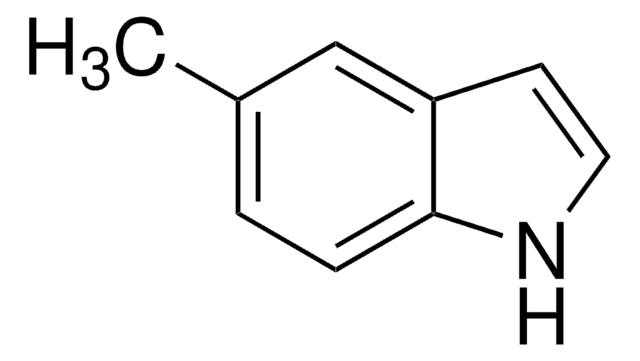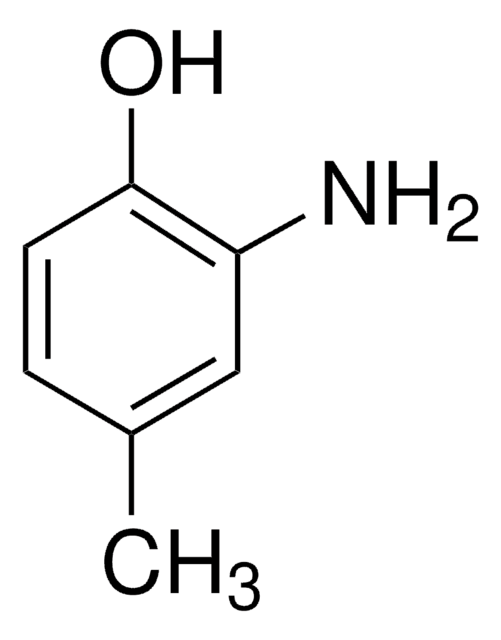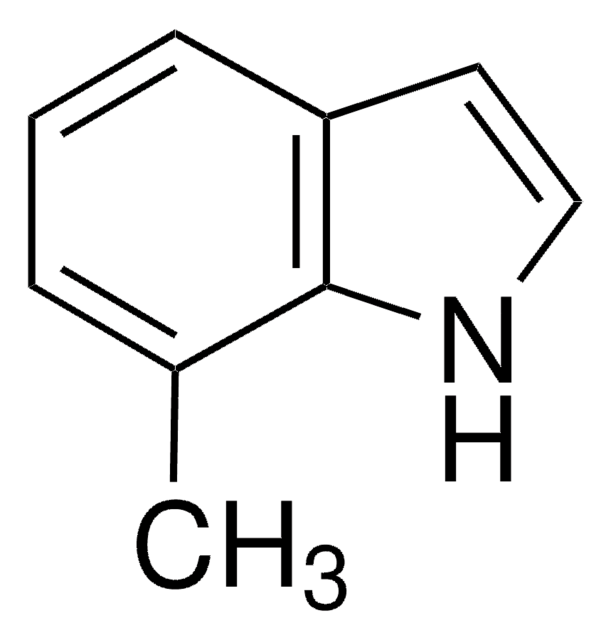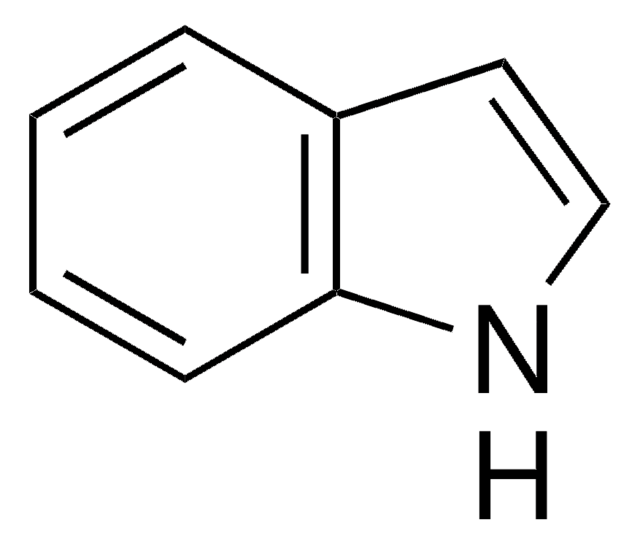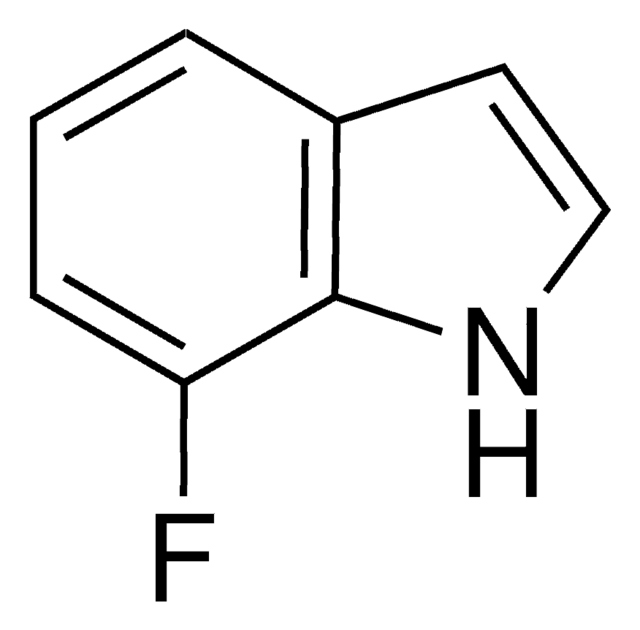About This Item
Recommended Products
Quality Level
Assay
99%
form
powder
bp
181-183 °C/24 mmHg (lit.)
mp
69-70 °C (lit.)
solubility
ethanol: 50 mg/mL, clear, faintly yellow
SMILES string
COc1cccc2[nH]ccc12
InChI
1S/C9H9NO/c1-11-9-4-2-3-8-7(9)5-6-10-8/h2-6,10H,1H3
InChI key
LUNOXNMCFPFPMO-UHFFFAOYSA-N
Application
- GABA analogs
- Sodium-Dependent Glucose Co-transporter 2 (SGLT2) Inhibitors for the Management of Hyperglycemia in Diabetes
- Anticancer agents
- Integrase strand-transfer inhibitors (INSTIs)
- Inhibitor of Proliferation of Colon Cancer Cells
- Isomeridianin G as GSK-3ß inhibitors
- HIV-1 integrase inhibitors
- Inhibitors of mitogen activated protein kinase-activated protein kinase 2 (MK-2)
Signal Word
Warning
Hazard Statements
Precautionary Statements
Hazard Classifications
Eye Irrit. 2 - Skin Irrit. 2 - STOT SE 3
Target Organs
Respiratory system
Storage Class Code
11 - Combustible Solids
WGK
WGK 3
Flash Point(F)
Not applicable
Flash Point(C)
Not applicable
Personal Protective Equipment
Regulatory Listings
Regulatory Listings are mainly provided for chemical products. Only limited information can be provided here for non-chemical products. No entry means none of the components are listed. It is the user’s obligation to ensure the safe and legal use of the product.
JAN Code
246298-100G:
246298-100MG:
246298-VAR:
246298-1G:
246298-BULK:
Choose from one of the most recent versions:
Already Own This Product?
Find documentation for the products that you have recently purchased in the Document Library.
Customers Also Viewed
Our team of scientists has experience in all areas of research including Life Science, Material Science, Chemical Synthesis, Chromatography, Analytical and many others.
Contact Technical Service